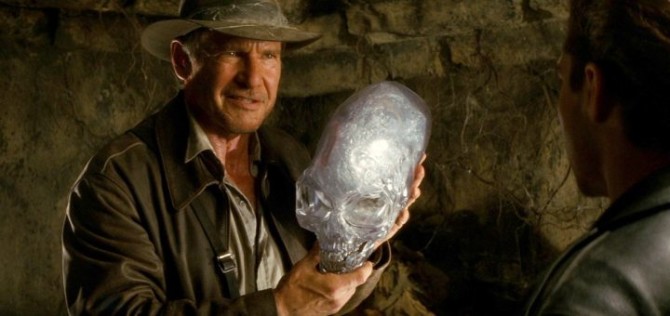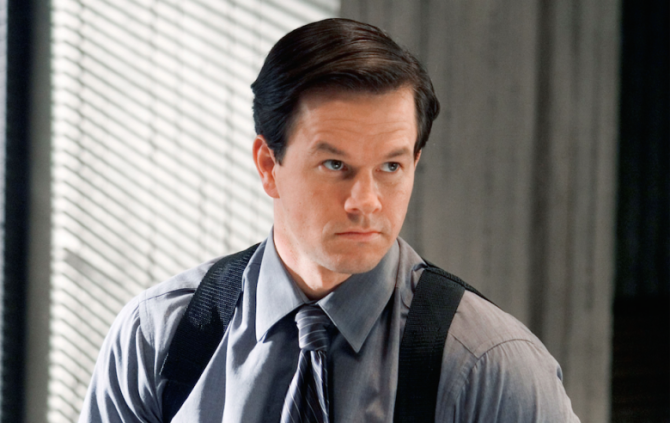I want you to imagine a scenario with me. You’ve just become the hot cool screenwriting thang on the block. Your nifty biopic about the woman who invented the trampoline finished with 27 votes on the Black List. All of a sudden everyone wants to meet with you. So you go to meeting after meeting and it’s all smiles and high-fives and then, at your final lunch with an executive at at Paramount Pictures, you learn that Michael Bay liked your script so much, he wants you to write the new Transformers spin-off! He feels like your inherent understanding of life’s complexities are going to work great for an Optimus Prime origin story.
So you go off and you write what you feel is a really good Transformers movie about how working in the trucking industry for 20 years helped him become the great autobot leader he is today. You’re not patting yourself on the back or anything. But if they film this script as is? It will be the best Transformers movie by far. There’s more depth and nuance in the final 10 minutes than there have been in all the Transformers movies combined. You’ve heard nightmare stories about getting bad notes from clueless executives, so you’re ready. This is your big shot and you’re going to look at everything through a positive lens.
Well, the primary executive you’re working with on the project, Colin, tells you that he really likes your script, but he’s been mulling it over and wants to go in a different, more exciting, direction. He wants Optimus Prime to be a dinobot. You see, Jurassic World 3 just came out and did bonkers box office and it would be a lot easier to sell this movie with a dinosaur as the protagonist. Uhhh… but this means erasing the truck delivery storyline, which is a key part of Optimus’s transformation. You’d basically have to scrap the whole script and start over. Don’t worry, Colin tells you. You’re a good writer. You’ll figure it out.
So you go and you write a new script, this one starting in the dinosaur age, where Optimus, now a dinobot, has to hide out from the Decepticons. You add a great climactic set piece where Optimus barely escapes death by meteor. You send this new draft in and Michael Bay wants to meet with you. He’s been busy filming a movie so this is the first draft he’s read. “Why is Optimus a dinosaur?” he asks. This movie is about a truck. It’s about truck-driving. You try and explain what happened but all Michael can say is, “Let’s go back to the truck story. Except I had a new idea. We’re going to set this in the future. Way in the future. We’ve seen present-day Transformers too many times. We’re going to give them something different this time around…”
One of the complaints that always bugs me about writers is when they moan and groan about the different writing standards for amateurs and pros. They see a hackneyed sloppily written stinker like Hobbs and Shaw, a movie that’s being played in over 4000 theaters in America alone, and they say, “This script is terrible. Nothing makes sense. Yet my script is dismissed because I had a spelling mistake on page 2.”
Let me say this. I understand every aspiring screenwriter’s frustration. I don’t know if there’s a more inherently demoralizing pursuit than writing. You spend six months writing a screenplay or two years writing a novel, and after you finally finish, a bunch of people tell you, “Meh. It was okay, I guess.” You’ve got to be quite the masochist to put yourself through that experience time and time again. So from the bottom of my heart, I understand your pain.
But now let’s remove feelings from the equation, since nobody in Hollywood cares about your feelings. And let’s look at this objectively. When screenwriters are called upon to write a movie for a studio or a production company, they are no longer the author. The person who’s bankrolling the movie is the author (or whoever the bankroller anoints as the project head). Therefore, you’re not so much writing as you are solving problems. People are coming to you, just like my Transformers example, and they’re telling you to change what you believe are good ideas into bad ones. They’re telling you that an actor wants their character to have more jokes even though that character isn’t a joker. They’re telling you they can’t afford to shoot at Times Square, so you’ll have to move the scene to a forest, even though that fundamentally changes everything about the movie. And these are just normal problems. Wait until you run into a director who decides to rewrite the script you just spent four years on two weeks prior to production.
When that movie then comes out and it doesn’t make sense at all… you blame that all on the screenwriter? The screenwriter is usually the person with the least amount of say on a project. All they can do is pick their battles and try to keep some semblance of a good story together.
Now some of you might say, “Well The Departed was a great script,” or “Schindler’s List rocked.” “So obviously IT IS possible for good movies to be made.” Well yeah. Of course. There are people in Hollywood in powerful positions that understand story. And when those people are shepherding a project, they’re going to be successful more often than not. But, unfortunately, most projects have people working on them who don’t know storytelling well. They may know marketing well. They may know character well. But they don’t know how to put together an A to Z story so they force a lot of bad ideas that you have to incorporate into your script. Does that make you a bad writer? No. Of course not.
Maybe the most high-profile example of this is Indiana Jones and the Kingdom of the Crystal Skull. It is one of the worst screenplays you’ve ever seen make it to the big screen. Long time A-list screenwriter David Koepp wrote that screenplay. Now do you think that David Koepp had any input on that screenplay whatsoever? David Koepp was a glorified exposition typist. They gave him a bunch of set pieces and story beats that didn’t fit together then asked him to make it make sense. This is why it’s so confusing for outsiders to process this. They see David Koepp’s name on this awful movie and they think, “Why would they keep hiring him? That film was trash.” Yeah but everyone knows Koepp had little to no say on how that screenplay went.
Now let’s turn to you, the amateur screenwriter. Your audience is completely different than the professional screenwriter. Let’s start there. The professional is more or less transcribing what someone else wants. That someone is the only audience they have to please. You, on the other hand, are writing to a very specific audience – and I want you to internalize this because it’s probably the most important point I’ll make all post – your audience is people tasked with reading terrible scripts over and over and over again. They have read so many bad screenplays, that by the time they read your script? They are both exhausted and assuming it will be just as bad as everything else they’ve read. Not because they’re trying to keep you down. Because that’s been the reality of their job. So, obviously, you’re going to need to come up with something pretty great to win them over.
There’s a second challenge to this. And I can speak about this from experience. Nobody is interested in you passing them a script that’s pretty good. In every instance where I’ve passed something up to someone – an agent or a producer – that I thought was pretty good, I was basically told to stop wasting their time. The only time anyone wants you to pass something to them is if it’s awesome. And even then, they usually read it and say “no thanks.” The reason why this is important to understand is that a lot of times, a reader will read something that’s genuinely decent. It’s got problems but they weren’t bored while reading the script. Unfortunately, these readers know that even though they thought the script was good, their boss or whoever had them read it, won’t care. They’re only going to care if you’re over-the-moon about the script.
This is a big reason the standards between amateurs and pros are different. You’re writing under a completely different set of circumstances than the pro writer. Now of course, there are other scenarios besides the “studio assignment.” A writer who just had a big sale comes out with another spec and it’s not very good. Well, a producer only cares about getting movies made. And if they have a spec from one of the hottest writers in town, that’s worth something, even if the script isn’t very good. “Us” wasn’t a very good screenplay. It was kind of all over the place. But is there any studio in town who wouldn’t have made Jordan Peele’s second movie? Of course not. So you have to factor that in.
How do you write one of these scripts that blows people away? Or wins a screenplay contest? There is no magical formula. But I can tell you this. Make sure you’ve got a professional presentation. Don’t let the reason you lose a reader be laziness. All of the “basics” need to be on lockdown. From there, it’s about picking a great concept – you can improve your chances of this by sending your ideas to friends and asking them to honestly rank your idea from 1-10. And then executing the story in a way that continually keeps the narrative exciting. We should always WANT to turn the page. We should never feel like we HAVE to turn the page. The more you study screenwriting, the more scripts you write, and the more scripts you read, the better you’ll get at that last part. And to all of you I say, I hope you eventually write the greatest script ever. Because it’s so much easier to read a good script than a bad one.
Yo, do you have a logline that isn’t working? Are those queries going out unanswered? Try out my logline service. It’s 25 bucks for a 1-10 rating, 150 word analysis, and a logline rewrite. I also have a deluxe service for 40 dollars that allows for unlimited e-mails back and forth where we tweak the logline until you’re satisfied. I consult on everything screenwriting related (first page, first ten pages, first act, outlines, and of course, full scripts). So if you’re interested in getting some quality feedback, e-mail me at carsonreeves1@gmail.com with the subject line: “CONSULTATION” and I’ll get back to you right away!




